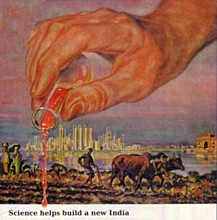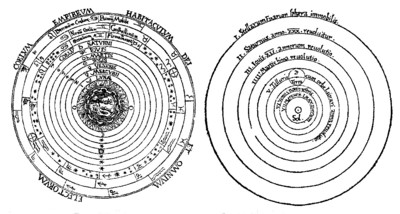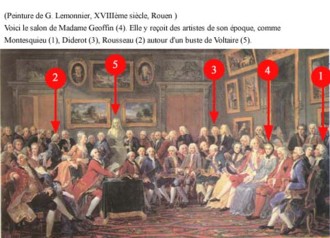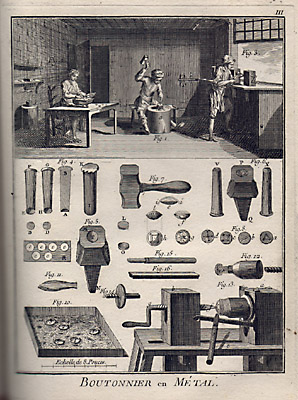 1962
Union Carbide ad in National Geographic
1962
Union Carbide ad in National Geographicmusic: Leonard Bernstein: Candide Overture
Why was slavery abolished?
Answer: The Power of Ideas
Progress: textbook p. 430f
"All of the ideals of the philosophes flowed together in the concept of progress. For the first time in European history, the belief that humans were engaged in an ultimately successful search for a new state of being here on Earth crystallized among a large group. The confidence and energy that were once directed to the attainment of heaven were now transferred to the improvement of earthly life."
 1962
Union Carbide ad in National Geographic
1962
Union Carbide ad in National Geographic
Changes in the 1700s
On paradigms and paradigm changes
The Scientific Revolution
 Two
paradigms of the universe:Ptolomaic and Copernican
Two
paradigms of the universe:Ptolomaic and Copernican
The medieval universe: geocentric, humanity at center
The modern universe: heliocentric, humanity nothing special
Enlightenment: definitions
 Carriers
of Movement: "Philosophes" in Salons
Carriers
of Movement: "Philosophes" in Salons
Encyclopedia
 2
sample plates: Buttonmaking & Brickmaking
2
sample plates: Buttonmaking & Brickmaking
Today, 5pm, Corwin Pav.
Samantha Power: A Problem From Hell
The story of U.S. indifference and courage in the face of the worst
massacres of the 20th century. Power examines how Americans have very rarely
marshalled their might to stop 20th Century campaigns to exterminate Armenians,
Jews, Cambodians, Iraqi Kurds, Bosnians and Rwandans.
What Is Enlightenment? (1784)
Immanuel Kant (1724-1804):
Enlightenment is man's release from his self-incurred tutelage.
Tutelage is man's inability to make use of his intellect without direction from another.
Self-incurred is this tutelage when its cause lies not in lack of reason but in lack of resolution and courage to use it without direction from another.
Sapere aude! Have courage to use your own reason!
That is the motto of enlightenment.
Theory (Béla Balázs, 1925)[one of professor's favorite quotations]
Theory is not "gray."
It is the horizon of the possible, a roadmap that shows new ways of doing old things, and new places to go.
Theory is freedom from the apparently unchangeable way things are, which it unmasks as one possibility among hundreds.
Theory breaks the ruts of coincidence and gives us the courage to undertake voyages of discovery. It makes every step we take an act of free choice.
Theory does not have to be true to inspire great works--most great discoveries were based on false hypotheses!
lecture by H. Marcuse on 4/8/03; outline prepared for web on 4/14/03.
back to top, to Hist 2c homepage